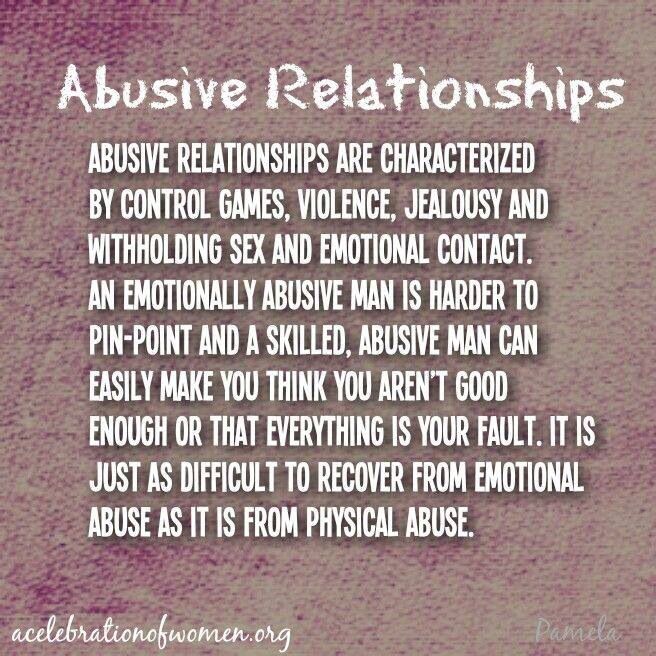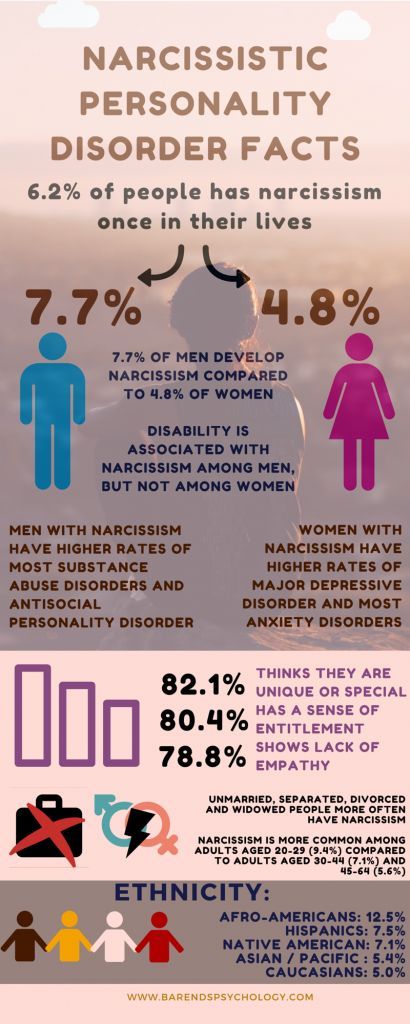Narcissists and jealousy
The Roots of Narcissistic Envy
In the Book of Genesis, Cain, the first narcissist, slays his brother Abel in a fit of envious rage. In the modern psychiatric “bible” (DSM-5), the diagnostic criteria for Narcissistic Personality Disorder include, “often envious of others or believes that others are envious of him or her.”
The connection between envy (wishing/demanding envy for the self and/or compulsively envying others) and narcissism was recognized long prior to confirmation in formal psychological research. This association between envy and narcissism casts light on the essential importance in narcissism of the management of shame.
Shame and envy are familiar emotions. When shamed, we feel a deflating awareness of our essential inadequacy, failure, or badness. There is a global sense of not living up to implicit moral standards. The person shamed wants to hide or avoid scrutiny, or to blame others for the deficiency.
When envious, attention turns to an external object or focus. Perhaps another person’s wealth, success, accomplishments, or happiness piques our envy. We feel an angry vexation, a resentful longing, at comparisons in which we come up short. In the primeval case of Cain, his envy triggered murderous rage when he perceived God’s response to Abel’s sacrifice more favorable than to his own.
Any parent who has brought home a newborn to an older child in the family experiences first-hand the nature of childhood envy. Sibling rivalries related to envy are entirely normal, rarely escalating to biblical level. Childhood envy often attaches to simple perceptions of unfairness, perhaps in terms of parental attention or treatment. By adulthood, envious states, while unpleasant, are manageable.
What makes the narcissist different?
The Role of Envy in Narcissistic Personalities
Narcissism develops within a personality structure organized at avoiding contact with shame. In apparent defiance of shame, there is a heightened focus on maintenance of an inflated sense of self-worth. While protective, narcissism comes at a psychological cost. Not only does preoccupation with self-enhancement require effort and energy, the desperate maintenance of a positive self-concept forfeits much of the ability to pay realistic attention to the needs, actions or feelings of others.
While protective, narcissism comes at a psychological cost. Not only does preoccupation with self-enhancement require effort and energy, the desperate maintenance of a positive self-concept forfeits much of the ability to pay realistic attention to the needs, actions or feelings of others.
In default grandiose states, the narcissistic mind may drift in a network of reassuring fantasies in which he or she is the center of attention and admiration. Envy is more likely to hijack attention for such a person than for someone genuinely comfortable in his or her own skin. To see someone exhibiting a trait, possession, or level of recognition that eludes you, or to encounter someone seemingly immune to some deflating quality you try mentally to keep at arm’s length, is jarring and unsettling.
For narcissists, people can broadly be divided into two groups: targets of their own envy and sources of real or imagined inflating envy from others. While narcissists attract and recruit sources of envious self-attention and admiration, this supply of ego gratification is rarely sufficient.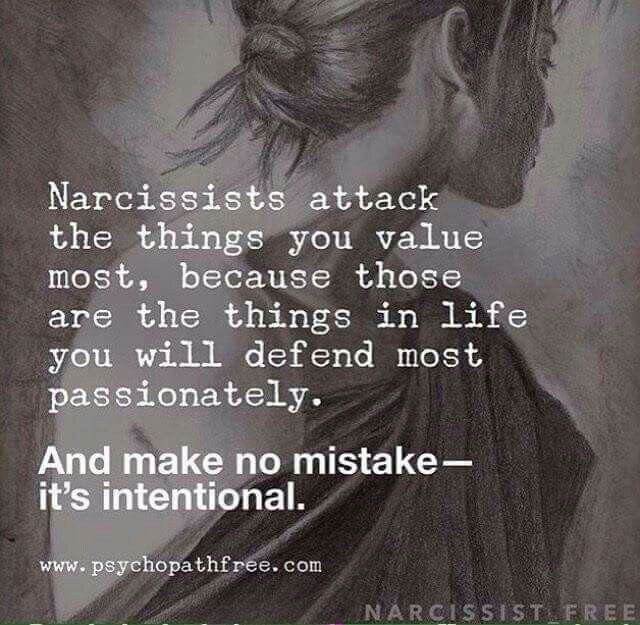 Over the horizon are people with qualities worthy of the narcissist’s envy. There is a buoying excitement and sense of inflation when around people of envied status. Often, the narcissist will try to cultivate friendships or acquaintanceships with people that they envy. For example, a narcissistic individual insecure about lack of financial success might strive to be surrounded with people wealthier than him or herself. The unconscious goal is to incorporate, possess, control, or identify with their envied status or qualities.
Over the horizon are people with qualities worthy of the narcissist’s envy. There is a buoying excitement and sense of inflation when around people of envied status. Often, the narcissist will try to cultivate friendships or acquaintanceships with people that they envy. For example, a narcissistic individual insecure about lack of financial success might strive to be surrounded with people wealthier than him or herself. The unconscious goal is to incorporate, possess, control, or identify with their envied status or qualities.
But in addition to self-enhancing identification comes a painful sense of frustration. Why does he or she have all this? Why not me? This mobilizes the hostile, bitter component of the envious emotion, in which the object envied needs to be diminished in order to lessen the distance between self and other. For the narcissist, this gap may elicit what has been called “narcissistic injury,” a poignant reminder of shameful inadequacies that he or she tries desperately to deny.
Flavors of Narcissistic Envy in Psychotherapy
Inexperienced psychotherapists in training are often uneasy dealing with narcissistic patients. Uncomfortable with power dynamics, they tend to avoid exploring the fraught, inevitable transactions that may require tolerating patient envy. Yet it is my experience that it is in who, what and how they envy, such a patient often communicates more deeply and truthfully than is possible directly. They may otherwise possess only limited access to an inner world rigidly defended.
For example, an "idealizing therapist envy" might be expressed as a narcissistic patient, examining credentials on the office wall, comments, “Well, we certainly seem to show a bright career future, Doctor.” Here the patient might be expressing insidious fears of failure, instilled in childhood, generally hidden under a compensating veneer of adult grandiosity. This may enable the therapist to ask, “Do you sometimes worry about your future?”
On the other hand, a statement at the close of a session, such as, “Now you will go to your lovely home and family and forget about me, while I return to my lonely apartment,” reveals the more hostile element of envy. The object of projected disapproval here is that of an indifferent caretaker, perhaps a sign of childhood parental neglect not previously elaborated. This might lead to a line of inquiry such as, “You wonder whether it is safe to open up with me.” In both of these instances, important topics emerge in the course of envious therapist characterizations.
The object of projected disapproval here is that of an indifferent caretaker, perhaps a sign of childhood parental neglect not previously elaborated. This might lead to a line of inquiry such as, “You wonder whether it is safe to open up with me.” In both of these instances, important topics emerge in the course of envious therapist characterizations.
Envy brings focus on the human ability to compare ourselves, in fantasy, with others simultaneously idealized and devalued. While animals perceive and react to relative status, we are the only beings capable of envy at the success of others. For those preoccupied with status and self-image, envy becomes obsessive, causing an inability to acknowledge the accomplishments of children, intimate partners, and family members. If you are involved with a narcissist, you can assume that you are the object of envy, even though it may not be expressed directly. Listen carefully.
What Makes Some Narcissists Mean, Competitive, and Jealous
Source: Fizkes/Shutterstock
Severe narcissism is one of the most complex and confusing psychological phenomena, and its complexity explains why so much is written about it, and why there remains a need to continue educating the public about it. The focus of this article will be to address one facet of the disorder that remains so mysterious. Specifically, people who are in close proximity to severe narcissists often can't understand why the narcissist in their life can: be so mean; get so jealous of their success or happiness; and be so competitive with them, even when we're talking about two romantic partners.
The focus of this article will be to address one facet of the disorder that remains so mysterious. Specifically, people who are in close proximity to severe narcissists often can't understand why the narcissist in their life can: be so mean; get so jealous of their success or happiness; and be so competitive with them, even when we're talking about two romantic partners.
One word that will help you understand the narcissist
To begin, the most helpful word in framing an understanding of the narcissist is "counterintuitive." The most crucial point is that how the narcissist presents on the surface is entirely different from how the narcissist feels underneath. There are two "selfs" at work in the mind of the narcissist: their real self, and the fraudulent, fantasy self they try to sell to the public. Severe narcissists have a predatory, score-keeping approach to the social world around them. The narcissist's daily life is spent fighting off potential threats to their ego and proving themselves as superior to everyone around them, and they have little peace of mind as they move through life. To understand why the narcissist can be so mean in interpersonal relationships, you must understand the unique motivations of the narcissist's intra-psychic world or, in lay terms, what goes on inside the mind of a narcissist.
To understand why the narcissist can be so mean in interpersonal relationships, you must understand the unique motivations of the narcissist's intra-psychic world or, in lay terms, what goes on inside the mind of a narcissist.
Most, if not all, severe narcissists were likely emotionally injured at a crucial time in their development. Specifically, they were injured when they were young children, a time when a child is highly impressionable, and when that child hasn't yet figured out how to shore up psychological guards (defenses) to ward off things that make them feel bad. When the young boy or girl was emotionally injured, it probably took the following form: An authority figure or even bullying kids at school humiliated them, subjugated them, knowingly neglected them, or otherwise exploited them. To become severely narcissistic later in life, the emotional injury in childhood had to be severe enough that the individual arrived at the following (unconscious) conclusion: No one will ever hurt me like that again; I will never let my guard down. Later in life, this way of relating to people and the world has been practiced over and over for so many years that the personality becomes largely locked into place, and it is extremely challenging for the narcissist to let themselves be exposed emotionally for very long at all. If someone or something threatens the narcissist's ego, the narcissist abruptly shifts into predator mode.
Later in life, this way of relating to people and the world has been practiced over and over for so many years that the personality becomes largely locked into place, and it is extremely challenging for the narcissist to let themselves be exposed emotionally for very long at all. If someone or something threatens the narcissist's ego, the narcissist abruptly shifts into predator mode.
Why narcissists can be so mean
In a moment, I will explain what happens when the narcissist shifts into predator mode. First, however, it is important to understand why the narcissist feels the need to fight so doggedly to begin with. In the mind of the narcissist, the social world includes two strict categories: winners and losers. There is no possible outcome they can conceive of in which everyone gets their needs met. There isn't enough attention and praise for everyone to go around, so according to narcissistic logic, only a few lucky ones will be selected. Because of the way the narcissist was probably humiliated, unnoticed, or subjugated in the past when it mattered most, the narcissist is also motivated by making sure that they are never put down or overlooked again. When the narcissist feels most threatened, it is because someone has said or done something that makes the narcissist feel small, unnoticed, weak, or defective, and the narcissist cannot allow anyone or anything to make him feel like that under any circumstances. The narcissist's thinking goes like this: Any threat to her or his temperamental ego must be identified and erased immediately. If the threat continues, it must be annihilated by any means necessary.
When the narcissist feels most threatened, it is because someone has said or done something that makes the narcissist feel small, unnoticed, weak, or defective, and the narcissist cannot allow anyone or anything to make him feel like that under any circumstances. The narcissist's thinking goes like this: Any threat to her or his temperamental ego must be identified and erased immediately. If the threat continues, it must be annihilated by any means necessary.
If you put down the narcissist or humiliate them publicly, you will unleash decades-old rage, and the narcissist will not stop until they feel you have been verbally or emotionally decimated. (Keep in mind that what the narcissist perceives as a slight is rarely objective.) People who haven't been in close proximity to a severe narcissist would never believe the animalistic, ugly wrath that spews from the narcissist when they are activated. Many boys and girls, or men and women, who have suffered at the hands of an extreme narcissist talk about how seeing such hate-filled "colors" in another human being is traumatic in itself. (These same individuals also find it hard to ever emotionally trust someone again who shows such unbridled, predatory rage.)
(These same individuals also find it hard to ever emotionally trust someone again who shows such unbridled, predatory rage.)
If you are in close proximity to a severe narcissist, understand that the meanness and viciousness the narcissist displays when threatened or held accountable is not personal. Narcissists can use words as bullets, zeroing in on anything they can to unsettle and upset you. Being on the receiving end of this behavior is horrifying and confusing. The recipients often turn to self-help books or articles (like this one) to make sense of the experience, because it is so traumatic and disturbing. Recipients often become sort of "armchair therapists," learning about this personality disorder and trying to become an expert on this type of personality to maintain their sanity. If you are in close proximity to a narcissist, I will highlight what is important for you to understand to move forward. At root, severe narcissists are highly abnormal men and women who have a form of mental illness (a personality disorder). The root of the disorder means that the narcissist, by definition, violates basic social rules and social conventions. When triggered, especially, they don't show empathy: They are entitled; they create their own reality from moment to moment; and they don't really care about others' feelings. The rules or social conventions that most elementary school children have already mastered are absent in the adult narcissist. I use the following expression with clients dealing with individuals like this: "They don't get it, but they also don't want to get it."
The root of the disorder means that the narcissist, by definition, violates basic social rules and social conventions. When triggered, especially, they don't show empathy: They are entitled; they create their own reality from moment to moment; and they don't really care about others' feelings. The rules or social conventions that most elementary school children have already mastered are absent in the adult narcissist. I use the following expression with clients dealing with individuals like this: "They don't get it, but they also don't want to get it."
To understand why narcissists can be so mean, you must understand that there are no limits or boundaries when they get triggered (e.g., something makes them look bad, countering the false, impermeable image they desperately try to sell to themselves and to the world overall). Nothing is off-limits with the narcissist when they are upset. No one else in the room has feelings when the narcissist is overwhelmed by his or her own negative feelings. It's a true onslaught, and to see someone who supposedly cares about and loves you completely deny your — and everyone else's — reality and to rip you to shreds, at times, is simply par for the course. If narcissists were foods approved by the Food and Drug Administration, the sticker would read: "Can be extremely malicious and destructive when provoked." Perhaps some men and women can handle being occasionally treated in an abusive way, but I'm not sure that should be the goal. The goal isn't to steel yourself against a loved one to the point where nothing they say or do hurts you. Yes, you could play that game, but what's the point of investing in a relationship that has no real emotional intimacy? Moreover, what's the point in having a relationship with someone who violates basic social rules that most third graders already subscribe to?
It's a true onslaught, and to see someone who supposedly cares about and loves you completely deny your — and everyone else's — reality and to rip you to shreds, at times, is simply par for the course. If narcissists were foods approved by the Food and Drug Administration, the sticker would read: "Can be extremely malicious and destructive when provoked." Perhaps some men and women can handle being occasionally treated in an abusive way, but I'm not sure that should be the goal. The goal isn't to steel yourself against a loved one to the point where nothing they say or do hurts you. Yes, you could play that game, but what's the point of investing in a relationship that has no real emotional intimacy? Moreover, what's the point in having a relationship with someone who violates basic social rules that most third graders already subscribe to?
Why narcissists are so competitive and can't let you, figuratively speaking, shine
Because the narcissist's emotional scar involved them being unnoticed, humiliated, or subjugated at a crucial point in their psychological development, the overall topic of succeeding, shining, or getting noticed is a so-called hot-button issue. It is a loaded issue, fraught with primitive and unconscious memories, thoughts, and feelings. So many people in close proximity to a severe narcissist feel confused about why the narcissist has such an intense and often negative reaction when the other person feels really good, succeeds, or shines. Here is where things get tricky and highly personality-disordered. Oddly enough, the severe narcissist takes your success as a reflection on them, but not necessarily in the way that you might be imagining. The mind of the narcissist is a binary, all-or-nothing world. If you succeed, their twisted logic tells them that your success means they failed. Someone else succeeding or shining (especially someone close to them, whom they see all the time) is actually upsetting (even unconsciously painful) because they see your success as a missed opportunity for themselves to get a little love or attention. While most people rightly believe that there is enough of all the good stuff to go around — love, attention, respect — severe narcissists are convinced that only a select few will get recognized.
It is a loaded issue, fraught with primitive and unconscious memories, thoughts, and feelings. So many people in close proximity to a severe narcissist feel confused about why the narcissist has such an intense and often negative reaction when the other person feels really good, succeeds, or shines. Here is where things get tricky and highly personality-disordered. Oddly enough, the severe narcissist takes your success as a reflection on them, but not necessarily in the way that you might be imagining. The mind of the narcissist is a binary, all-or-nothing world. If you succeed, their twisted logic tells them that your success means they failed. Someone else succeeding or shining (especially someone close to them, whom they see all the time) is actually upsetting (even unconsciously painful) because they see your success as a missed opportunity for themselves to get a little love or attention. While most people rightly believe that there is enough of all the good stuff to go around — love, attention, respect — severe narcissists are convinced that only a select few will get recognized. Sadly, no amount of convincing will convince them otherwise. It is critical to understand that the narcissist isn't competitive with you because they hate you or want to hurt you emotionally. They do what they do because they are feeling emotionally deprived themselves.
Sadly, no amount of convincing will convince them otherwise. It is critical to understand that the narcissist isn't competitive with you because they hate you or want to hurt you emotionally. They do what they do because they are feeling emotionally deprived themselves.
Normal people are entirely confused about how the narcissist — or anyone, for that matter — can go through so much of their life without ever having learned and accepted some of the most fundamental social laws. Most third graders already understand and follow these basic social conventions, so it is almost hard to understand on a logical level how someone who looks like an adult and is not cognitively disabled could act so much like a child. This issue broaches the subject of another factor that underlies the disorder: oppositionality.
Oppositionality is an often overlooked part of the disorder.
Anecdotally, having worked with many children and teenagers who have Oppositional Defiant Disorder, I have noticed an interesting overlap between that disorder and adult Narcissistic Personality Disorder. The overlap is worth examining, because it will help you to see how so much of the narcissist's mental approach and behavior is inherently oppositional under the surface.
The overlap is worth examining, because it will help you to see how so much of the narcissist's mental approach and behavior is inherently oppositional under the surface.
Oppositional Defiant Disorder (known as ODD in clinical circles) is a mental disorder seen in school-aged children. The diagnosis includes the following criteria: often loses temper; often argues with adults; often actively defies or refuses to comply with adults’ requests or rules; often blames others for his or her mistakes or misbehavior; is often angry and resentful; and is often spiteful or vindictive. If you are in close proximity to a narcissist, you see the shared characteristics.
Children who have oppositional, defiant personalities and adults who have narcissistic personalities are the way they are for a reason. There is no strict biological basis for these complex, difficult personalities. Perhaps biology plays a role, but my many years of experience with clients has shown that something in the individual's emotional relationships early in life was usually a major contributor (unhealthy parenting approaches, trauma, etc. ). The point is that the narcissist's personality got constructed in a highly defensive way. For a personality to become so resistant, difficult, and all-around abnormal, something abnormal in the individual's past had to take place over a significant length of time or during an especially critical period in that individual's development (perhaps within the first several years of life, or what many call the "critical period").
). The point is that the narcissist's personality got constructed in a highly defensive way. For a personality to become so resistant, difficult, and all-around abnormal, something abnormal in the individual's past had to take place over a significant length of time or during an especially critical period in that individual's development (perhaps within the first several years of life, or what many call the "critical period").
For those in close proximity to the severe narcissist, they must understand what, again, is counterintuitive. In other words, how the severe narcissist acts with you often — especially when their ego or sense of power has been threatened — has nothing to do with you.
What kind of a relationship can you have with a severe narcissist?
Given the highly abnormal relationship dynamic a narcissist requires, what kind of relationship can you have with a severe narcissist? The answer isn't simple. If you don't emotionally trigger the narcissist, you can have a semblance of a relationship.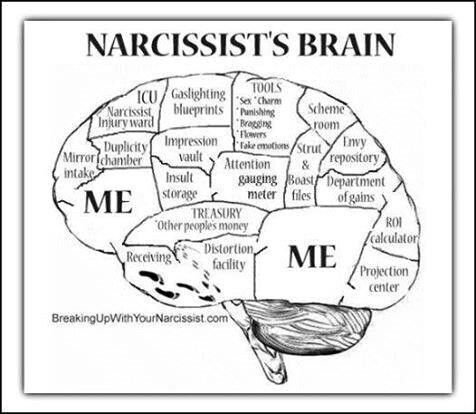 There won't be real intimacy — because intimacy is about equals, and narcissists can't do that, no matter what — but you can coexist. But if you are someone who feels good about yourself, gets noticed and praised by others, and holds themselves or anyone else accountable for major social or relationship violations, there can usually be no relationship. To make it work with a narcissist, you must alter your entire line of thinking with them in this way: They have the power, they are in control, and they matter more. Without adopting this skewed, counterintuitive framework, the narcissist, from time to time, will always end up making you pay a price for the self-esteem you have.
There won't be real intimacy — because intimacy is about equals, and narcissists can't do that, no matter what — but you can coexist. But if you are someone who feels good about yourself, gets noticed and praised by others, and holds themselves or anyone else accountable for major social or relationship violations, there can usually be no relationship. To make it work with a narcissist, you must alter your entire line of thinking with them in this way: They have the power, they are in control, and they matter more. Without adopting this skewed, counterintuitive framework, the narcissist, from time to time, will always end up making you pay a price for the self-esteem you have.
To read about specific visualization techniques you can use to keep the peace with a narcissist, read my article on the subject here.
Seth Meyers is the author of Overcome Relationship Repetition Syndrome and Find the Love You Deserve.
Jealousy. View of psychologists - PSU T.G. Shevchenko
As part of the project “Love, family, children” implemented by the Psychological Service, we offer you to get acquainted with some of the problems that may arise in relations between a man and a woman.
Jealous is a child,
who is afraid of monsters,
created in the darkness of his imagination.
Pierre Boiste (French philosopher)
There are different views on jealousy in relations between a man and a woman.
- Jealousy is an integral part of sexual love, intimate friendship, it speaks of the strength of attraction.
- Jealousy - selfishness in sexual relations.
- Jealousy is an emotion not inherent in love, like a shadow in human relationships.
In psychology, jealousy is seen as a negative feeling arising from self-doubt when feeling a lack of attention, love, respect or sympathy from a very close person, while all this is real or imaginary received by someone else.
This definition is very common and actually illustrates the essence of the problem. Namely, that the feeling of jealousy is fueled by the internal images of a person. Therefore, for a jealous person, proofs and explanations are often not an argument for trust and peace of mind.
Therefore, for a jealous person, proofs and explanations are often not an argument for trust and peace of mind.
An interesting fact is that jealousy has a biological basis and purpose. This feeling is provided by nature to protect the object most suitable for procreation, to preserve one's life and is fueled by testosterone. From this point of view, there is an objective, necessary jealousy. But what to do with pathological jealousy, which does not need real facts? Both the jealous and their entourage suffer from such excruciating jealousy. Particularly jealous people resort to surveillance, violence, scandals, depression, intrusive actions in the form of checking phones, etc. All this has a detrimental and destructive effect on family and love relationships.
Pathological jealousy, one way or another, can be compared with a psychological problem of a certain kind. Therefore, we propose to consider the following types of jealousy:
Paranoid jealousy. People with this type of jealousy, avoiding fantasies about their own desires for infidelity and polygamous relationships, project their needs onto other people, becoming convinced that their partners are dangerously attractive to others. According to the British psychoanalyst Nancy McWilliams, such fears often hide the fear of one's own homosexual fantasies, which are dangerous from the point of view of social punishment. It is in this that the need of a paranoid jealous person is revealed, not to receive punishment himself, to blame a loved one. Jealousy of this type arises as a result of an extreme degree of humiliation in the family, as well as due to increased anxiety of the mother, who not only is not able to help the child cope with her relationship, but also transmits to him a basic distrust of the world and himself.
People with this type of jealousy, avoiding fantasies about their own desires for infidelity and polygamous relationships, project their needs onto other people, becoming convinced that their partners are dangerously attractive to others. According to the British psychoanalyst Nancy McWilliams, such fears often hide the fear of one's own homosexual fantasies, which are dangerous from the point of view of social punishment. It is in this that the need of a paranoid jealous person is revealed, not to receive punishment himself, to blame a loved one. Jealousy of this type arises as a result of an extreme degree of humiliation in the family, as well as due to increased anxiety of the mother, who not only is not able to help the child cope with her relationship, but also transmits to him a basic distrust of the world and himself.
Manifestations. Constant distrust, checks, ideas that they will be thrown and betrayed from the very beginning of the relationship.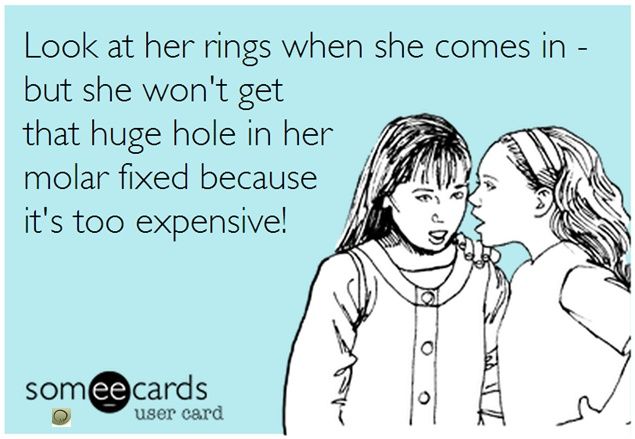 This is expressed not just in deliberation, but in a sense of fear of losing the relationship. The partner of a paranoid jealous person in the course of the relationship begins to experience anxiety and a sense of insecurity that he did not experience before. With all this, paranoid individuals are capable of deep relationships, love and fidelity, and therefore can become wonderful family men. In order to help your partner cope with your distrust, create a stable, understood and friendly environment in the house and in the relationship. Keep promises, try to tell the truth. He needs to feel that your relationship is honest and safe.
This is expressed not just in deliberation, but in a sense of fear of losing the relationship. The partner of a paranoid jealous person in the course of the relationship begins to experience anxiety and a sense of insecurity that he did not experience before. With all this, paranoid individuals are capable of deep relationships, love and fidelity, and therefore can become wonderful family men. In order to help your partner cope with your distrust, create a stable, understood and friendly environment in the house and in the relationship. Keep promises, try to tell the truth. He needs to feel that your relationship is honest and safe.
Narcissistic jealousy. People whose personality is organized around the support of self-esteem through confirmation from outside are called narcissists. Jealousy of narcissists is based on a deep unconscious feeling that they are deceived and unloved and fueled by fear of shame. It is formed as a result of excessive expectations on the part of parents, inflated standards that are difficult for a child to meet.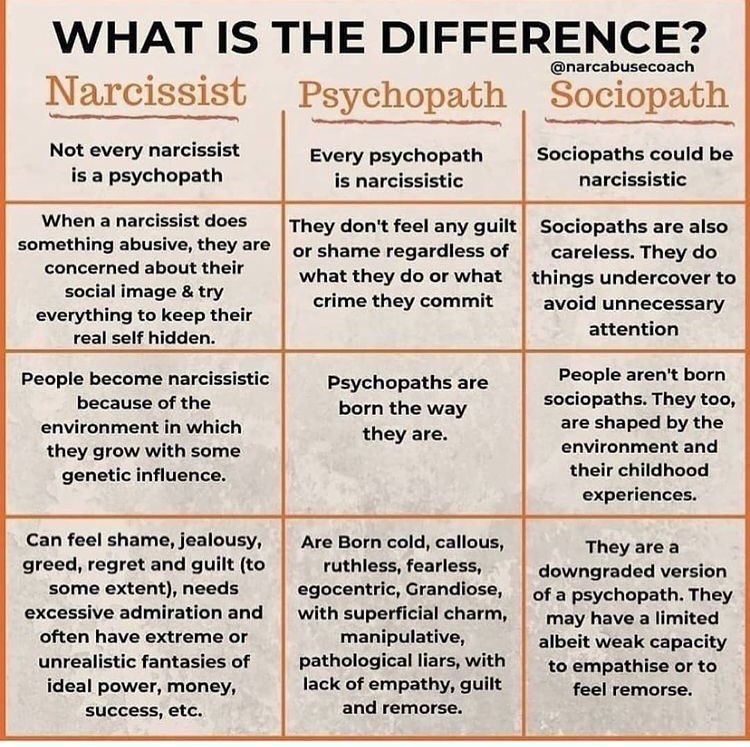 It seems to such people that if they are not the best, they will not be loved. Because of this, narcissistic jealousy is highly sensitive to non-verbal emotional messages and messages in the presence of other people. For example, when a partner is too smiling and friendly with others, has many friends. Jealousy manifests violently, emotionally. At the same time, you can hear the phrases “What will others think? They will laugh at me. Did you flirt with him because he makes more money? In order to quench the narcissist's jealousy, praise your partner more, especially in front of others. Try to be more restrained in praising others. And most importantly, the partner must understand that you love him and appreciate him not only for his achievements, but for his individuality and small weaknesses.
It seems to such people that if they are not the best, they will not be loved. Because of this, narcissistic jealousy is highly sensitive to non-verbal emotional messages and messages in the presence of other people. For example, when a partner is too smiling and friendly with others, has many friends. Jealousy manifests violently, emotionally. At the same time, you can hear the phrases “What will others think? They will laugh at me. Did you flirt with him because he makes more money? In order to quench the narcissist's jealousy, praise your partner more, especially in front of others. Try to be more restrained in praising others. And most importantly, the partner must understand that you love him and appreciate him not only for his achievements, but for his individuality and small weaknesses.
Psychopathic jealousy. Psychopathic jealousy is the most violent and takes the most pathological forms and consequences. The main problem is that a person cannot constantly control his impulses and reactions. Therefore, manifestations of jealousy are antisocial in nature. Psychopathic jealousy is built on the inability to human affection and reliance in relationships on primitive territorial psychological mechanisms. Jealous people believe that it is necessary to remind who is the boss in the house, and to show with jealousy that a person is his property. Most often, this type of jealousy is observed in men. The degree of manifestation of jealousy decreases after 30-40 years. Since it is difficult and almost impossible for psychopathic personalities to express their emotions and fears, they demonstrate them through showing their strength, resorting to violence, beatings, screaming. In order to avoid violence due to jealousy, it is necessary to make a person respect himself. Keep your promises and threats, do not throw words into the wind. And in no case do not tolerate pathological manifestations of jealousy, because this will only contribute to their growth.
Therefore, manifestations of jealousy are antisocial in nature. Psychopathic jealousy is built on the inability to human affection and reliance in relationships on primitive territorial psychological mechanisms. Jealous people believe that it is necessary to remind who is the boss in the house, and to show with jealousy that a person is his property. Most often, this type of jealousy is observed in men. The degree of manifestation of jealousy decreases after 30-40 years. Since it is difficult and almost impossible for psychopathic personalities to express their emotions and fears, they demonstrate them through showing their strength, resorting to violence, beatings, screaming. In order to avoid violence due to jealousy, it is necessary to make a person respect himself. Keep your promises and threats, do not throw words into the wind. And in no case do not tolerate pathological manifestations of jealousy, because this will only contribute to their growth.
Masochistic jealousy. People with masochistic jealousy have an unconscious idea that they can only be interested and loved in moments of fear, anxiety and suffering. Such feelings are formed at an early age, if parents pay attention to the child only at the moment when he is very ill (strong tears, a full diaper, pain). Masochists - jealous people fantasize and expect jealousy in order to feel pain and cause a partner to feel guilty, in which he will pay more attention to him. Often masochists introduce loved ones to attractive people and provoke situations in which their jealousy escalates. Even if there is an objective reason for jealousy or betrayal, masochists do not leave their loved ones, receiving painful pleasure from the situation. Manifestations of this type of jealousy are as follows: a sad person reminds that he loves so much, but he doesn’t, and he suffers. To help cope with the manifestations of masochistic jealousy, you can use trusting relationships. Try to pay attention to your partner in ordinary and pleasant situations.
People with masochistic jealousy have an unconscious idea that they can only be interested and loved in moments of fear, anxiety and suffering. Such feelings are formed at an early age, if parents pay attention to the child only at the moment when he is very ill (strong tears, a full diaper, pain). Masochists - jealous people fantasize and expect jealousy in order to feel pain and cause a partner to feel guilty, in which he will pay more attention to him. Often masochists introduce loved ones to attractive people and provoke situations in which their jealousy escalates. Even if there is an objective reason for jealousy or betrayal, masochists do not leave their loved ones, receiving painful pleasure from the situation. Manifestations of this type of jealousy are as follows: a sad person reminds that he loves so much, but he doesn’t, and he suffers. To help cope with the manifestations of masochistic jealousy, you can use trusting relationships. Try to pay attention to your partner in ordinary and pleasant situations.
Schizoid or avoidant jealousy. Schizoid jealousy is inherent in people who unconsciously and purposefully form fantasies of jealousy in order to create or maintain an interpersonal distance with a partner. These people are unemotional and therefore, in their jealousy, they do not show excessive anxiety and emotions. You can only notice the sadness that the jealous man does not want to talk about. This is precisely the difficulty in calming jealousy - it is difficult to guess about it. From them you can hear calm phrases like: “You like him, then I won’t interfere”, “I can’t stand your obvious flirting, I need to think in private.” Also, his ideas about jealousy can take a very artsy and creative form. For example, ideas for incredible dates or gifts. If a person becomes jealous, he becomes surprisingly indifferent in sexual relations, spends a lot of time away from home and at work, reading philosophy. The main problem that causes jealousy is the emotional distancing that a person is used to.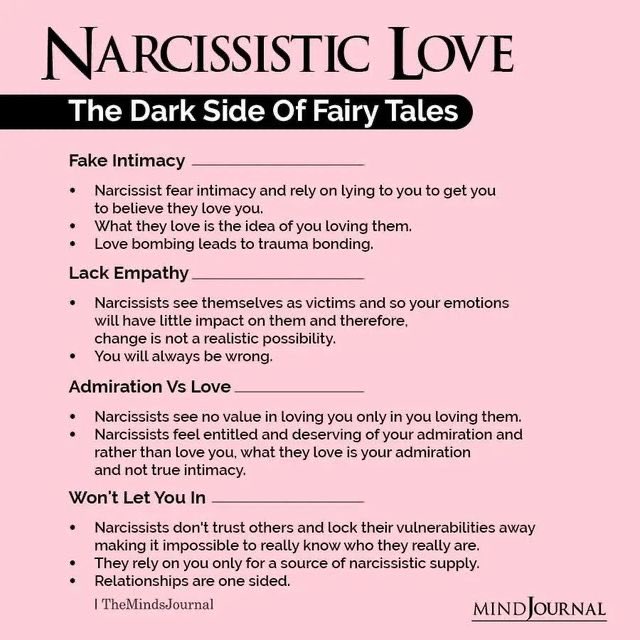 If you see that the mother of a loved one is very cold and stingy with emotions, you can expect various tricks from him, with the help of which he will try to maintain a safe interpersonal distance with you. Respect for a person's personal boundaries can help deal with this kind of jealousy. If you feel that it is difficult for your partner to open up, give him the opportunity to get used to you gradually. He should have a place in the house that will be only his. Otherwise, sooner or later he will resort to his defense mechanisms of avoiding contact and form the idea of jealousy.
If you see that the mother of a loved one is very cold and stingy with emotions, you can expect various tricks from him, with the help of which he will try to maintain a safe interpersonal distance with you. Respect for a person's personal boundaries can help deal with this kind of jealousy. If you feel that it is difficult for your partner to open up, give him the opportunity to get used to you gradually. He should have a place in the house that will be only his. Otherwise, sooner or later he will resort to his defense mechanisms of avoiding contact and form the idea of jealousy.
Hysterical jealousy. Tantrums are very emotional, sensitive and demonstrative. They have a developed intuition and are used to being the center of attention of a loved one and not only. Tantrums are used to having fun. Hysterical jealousy always has a vivid emotional character and is often associated with suspicions of betrayal in the form of sex, and not spiritual intimacy.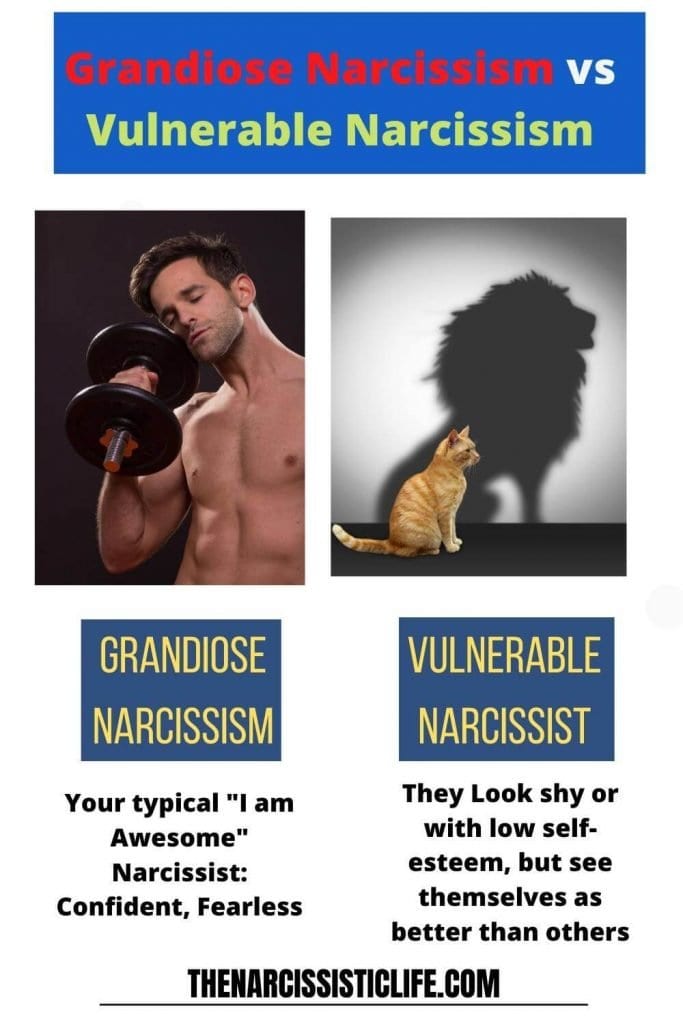 Jealousy often arises if sexual relations cool down and comes with the first manifestations of old age (wrinkles, gray hair). These two indicators form a belief in personal unattractiveness, and as a result, a certain justification is formed, in our case, treason. Jealous people are convinced that the partner has found or is looking for a younger and physically stronger person. The hysteric sharply and violently demonstrates his jealousy, begins to scream for no reason. His mood quickly changes from good to bad, there is no criticism of his actions, he calms down only in case of a scream or aggression from a partner. The actions of a jealous person are unusually theatrical, reminiscent of playing out a tragedy. In order to reduce the level of unreasonable jealousy, it is necessary to kindle a flame in sexual relations, to talk more often about the external attractiveness of a partner.
Jealousy often arises if sexual relations cool down and comes with the first manifestations of old age (wrinkles, gray hair). These two indicators form a belief in personal unattractiveness, and as a result, a certain justification is formed, in our case, treason. Jealous people are convinced that the partner has found or is looking for a younger and physically stronger person. The hysteric sharply and violently demonstrates his jealousy, begins to scream for no reason. His mood quickly changes from good to bad, there is no criticism of his actions, he calms down only in case of a scream or aggression from a partner. The actions of a jealous person are unusually theatrical, reminiscent of playing out a tragedy. In order to reduce the level of unreasonable jealousy, it is necessary to kindle a flame in sexual relations, to talk more often about the external attractiveness of a partner.
Obsessive-compulsive jealousy. People prone to this type of jealousy tend to form obsessive thoughts and actions. There are many workaholics and scientists among them. Their jealousy is saturated with rational explanations, facts, and is unemotional. Manifestations of jealousy are systemic, planned. For example, a person checks your phone exactly four times a day or eavesdrops only on evening phone conversations. Jealousy is similar to ritual actions. The reason for jealousy is the anger and fear imposed on the part of the parents, when they showed love only in return for homework done, a poem read or told. Thus, by performing certain actions, the jealous person protects himself from the loss of the object. Let the person perform his rituals, of course, if they are more or less normal. Remember that this is how they think they protect your relationship.
There are many workaholics and scientists among them. Their jealousy is saturated with rational explanations, facts, and is unemotional. Manifestations of jealousy are systemic, planned. For example, a person checks your phone exactly four times a day or eavesdrops only on evening phone conversations. Jealousy is similar to ritual actions. The reason for jealousy is the anger and fear imposed on the part of the parents, when they showed love only in return for homework done, a poem read or told. Thus, by performing certain actions, the jealous person protects himself from the loss of the object. Let the person perform his rituals, of course, if they are more or less normal. Remember that this is how they think they protect your relationship.
In any case, jealousy, one way or another, may be present in our relationship. It can be useful and warm up a cooled relationship. But it can destroy even the strongest union. “If you want to keep your husband, make him a little jealous of you; if you want to lose him, make him jealous of you a little more” (Henry Louis Mencken).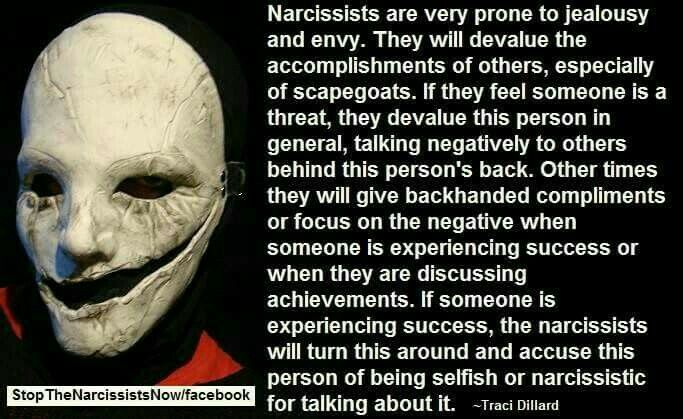 Jealousy can keep you feeling in love. In a stable relationship, eliciting a little bit of jealousy is just as important as it is when a relationship starts. But here it is very important not to go too far. Causing jealousy in a partner, it is important not to forget to give him attention, care, your love. Remember that when playing with jealousy, it is important not to play too much. If there is too much jealousy, it becomes almost impossible to maintain a warm relationship.
Jealousy can keep you feeling in love. In a stable relationship, eliciting a little bit of jealousy is just as important as it is when a relationship starts. But here it is very important not to go too far. Causing jealousy in a partner, it is important not to forget to give him attention, care, your love. Remember that when playing with jealousy, it is important not to play too much. If there is too much jealousy, it becomes almost impossible to maintain a warm relationship.
Psychologists at the University of Delaware believe that both women and men are subject to blind jealousy. Two professors have found that in a moment of jealousy, people become so drunk on negativity that they are unable to distinguish objects in front of them. Therefore, at the moment when jealousy becomes pathological, that is, it is formed not on objective facts, but on internal deep problems, a similar blindness overcomes a person’s whole life and relationships. And then the most effective way out can be an appeal to an experienced psychologist.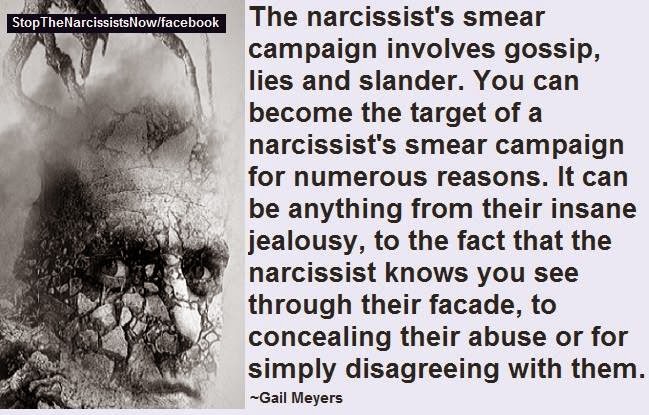 But to begin with, discuss with your partner your concerns about your own or his jealousy, clearly and unambiguously formulate your attitude towards him. And most importantly - do not forget to say words of love to each other.
But to begin with, discuss with your partner your concerns about your own or his jealousy, clearly and unambiguously formulate your attitude towards him. And most importantly - do not forget to say words of love to each other.
The psychological service of the university is always with you!
(room 7 77, 81, office tel.: 053379567)
Narcissistic Jealousy, Therapeutic Reflections - Gestalt Club
Narcissistic Jealousy - Doesn't it sound absurd? For the first glance, it may appear that the narcissist is incapable of experiencing jealousy, as well as envy. Because - haha - "who can be better than me?" In order to be jealous, the narcissist is too sure of its superiority. Sometimes so much that his partners will fall into a rage - it will seem to them that the narcissist is just spit. It is possible that this can also be the case - he just indifferent. Or you will become indifferent to him if you are interested others. The narcissist thinks he's too cool to be trade him for someone else, and if that happens - it means that something is wrong with his partner, and in no case with him, and all the love and admiration for themselves in one moment quickly disappear - so there’s really nothing to worry about then there is no point in being jealous. However, I have a suspicion that narcissists still have a certain amount of jealousy or may be, it is simply expressed in a slightly different way than, for example, in paranoid or anxious, uniform.
However, I have a suspicion that narcissists still have a certain amount of jealousy or may be, it is simply expressed in a slightly different way than, for example, in paranoid or anxious, uniform.
Unconsciously driven by the fear of rejection, the narcissist firstly, it may initially be avoided by those who could reject or choose someone else instead. But here too everything is not easy - he needs someone no less "cool" than him, and accordingly, having every chance of being interesting not to him alone, because in this place the narcissist can simply get into a dead end and still encounter jealousy, the forms of which I will speak about later. Another option - being sometimes quite self-confident and unprincipled, narcissist, interested in someone and noticing mutual interest, will not look at anything and nothing will stop him - neither the existence of their own relations, nor the fact that the subject of his passion has a partner. He can watch, explore and wait for a long time the right moment . . To finally defeat his unsurpassed)) On the one hand, he knows that he is too good, to be able to pass. But at the same time, the one to whom he sympathizes - also good (otherwise the narcissist would not be interested) and, therefore, somewhere in the depths of the soul, maybe the narcissist is afraid to be rejected by him. Torn between these contradictions narcissistic jealousy can look very specific.
. To finally defeat his unsurpassed)) On the one hand, he knows that he is too good, to be able to pass. But at the same time, the one to whom he sympathizes - also good (otherwise the narcissist would not be interested) and, therefore, somewhere in the depths of the soul, maybe the narcissist is afraid to be rejected by him. Torn between these contradictions narcissistic jealousy can look very specific.
The narcissist needs attention and recognition but will not fight. for them, if they are not there initially. Or does he think that they not enough. More precisely, no .. It will, but how? Indirectly, directly to say it's too scary. He can provoke jealousy himself, sometimes consciously, sometimes not, if he doubts your feelings for him or lacks attention. But the narcissist himself there is no point in provoking jealousy - he will either not fall for it, or hit on you. Even if he falls in love with you, until he sure enough of the reciprocity of his feelings, or that at least there is a chance he can pretend that you don't exist. BUT may not really notice - in order to notice someone, a daffodil you need to notice it first. In an existing relationship, he will not be paranoid, but if he realizes that he was chosen instead another, it will devalue everyone. Sometimes - myself - "I am insignificant and not worthy". And sometimes, instead of tormenting yourself with thoughts about that something is wrong with him, he will devalue this other person and the one whom he chose instead of him, and will raise himself to an even higher a high pedestal (in fact, this is a struggle with an unconscious feeling own insignificance). He looks at it with contempt. arrogance: "I'm so disappointed. I thought you were better. You don't you deserve my love. I'm too good for you. It's you so primitive and banal that he could not see and appreciate my the uniqueness and depth of my feelings, and to understand how lucky you are that I got interested in you. What stupid taste you have. Who are you chose? Who did you change me for? You don't deserve me.
BUT may not really notice - in order to notice someone, a daffodil you need to notice it first. In an existing relationship, he will not be paranoid, but if he realizes that he was chosen instead another, it will devalue everyone. Sometimes - myself - "I am insignificant and not worthy". And sometimes, instead of tormenting yourself with thoughts about that something is wrong with him, he will devalue this other person and the one whom he chose instead of him, and will raise himself to an even higher a high pedestal (in fact, this is a struggle with an unconscious feeling own insignificance). He looks at it with contempt. arrogance: "I'm so disappointed. I thought you were better. You don't you deserve my love. I'm too good for you. It's you so primitive and banal that he could not see and appreciate my the uniqueness and depth of my feelings, and to understand how lucky you are that I got interested in you. What stupid taste you have. Who are you chose? Who did you change me for? You don't deserve me. It's fine, that our paths diverged. "He, of course, may not say this out loud will say, but only for the last time will look at you "like shit" and on this cheerful, contemptuously self-confident note, the narcissist may never look your way again. Whereas on in fact, by the way, it is not a fact that the real grounds for jealousy they really were. But it's too risky to explain directly - you can "sleep" in your true feelings. If the border guard oscillates unsteadily between love and hate despite having he has narcissistic traits, yet the narcissist is more permanent in this. He will admire you no less than himself (after all, he cannot next to him to be someone worse than him), but in case of disappointment - will see in you a projection of his own insignificance rejected by him - walks away and doesn't look back. Moreover, not to disappoint the narcissist is not a task. from simple ones, even if you do not touch on the topic of jealousy - putting forward high enough demands on himself, he will be just as much demand from others.
It's fine, that our paths diverged. "He, of course, may not say this out loud will say, but only for the last time will look at you "like shit" and on this cheerful, contemptuously self-confident note, the narcissist may never look your way again. Whereas on in fact, by the way, it is not a fact that the real grounds for jealousy they really were. But it's too risky to explain directly - you can "sleep" in your true feelings. If the border guard oscillates unsteadily between love and hate despite having he has narcissistic traits, yet the narcissist is more permanent in this. He will admire you no less than himself (after all, he cannot next to him to be someone worse than him), but in case of disappointment - will see in you a projection of his own insignificance rejected by him - walks away and doesn't look back. Moreover, not to disappoint the narcissist is not a task. from simple ones, even if you do not touch on the topic of jealousy - putting forward high enough demands on himself, he will be just as much demand from others.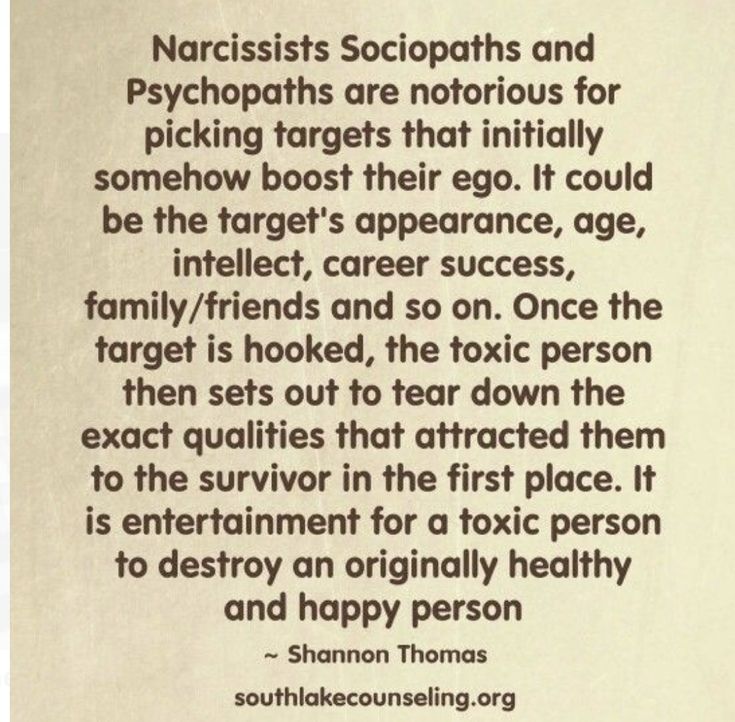 Although, in general, I think the stage of disappointment inevitable in any relationship, and in conscious love (which, I but, I suppose, can become available highly functional narcissists) have the opportunity to meet imperfection and realize the imperfection of the other, accept it and develop relationships farther, then for the less "advanced" narcissist, disappointment is more often just fatal.
Although, in general, I think the stage of disappointment inevitable in any relationship, and in conscious love (which, I but, I suppose, can become available highly functional narcissists) have the opportunity to meet imperfection and realize the imperfection of the other, accept it and develop relationships farther, then for the less "advanced" narcissist, disappointment is more often just fatal.
Narcissists will not follow, interrogate or make a scene jealousy is too low for them. Rather, they will immediately fall down, although they can also change in the end: out of revenge and for self-affirmation. And even if you have never cheated on a narcissist, but let's say he was not enough attention from you, he can spin with a calm soul romance on the side without even hiding it, and then in this he will blame you.
So I suspect that daffodils are real much more jealous than it seems. They can be very jealous. It is simply difficult for them to admit their own vulnerability, vulnerability in this place even to ourselves.